
February 7
1889 Birth: Josef Thorak: Said to have been Hitler's favorite sculptor. He will specialize in heroic male figures and create colossal sculptures. Will be acquitted of all crimes during denazification. [For further details, Click here.]
1898 Dreyfus affair: Zola is brought to trial:
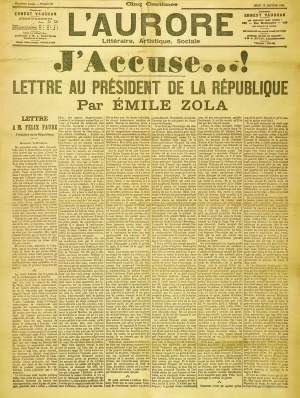
On this day in 1898, French writer Emile Zola is brought to trial for libel for "J'Accuse," his newspaper editorial attacking the French army over the Dreyfus affair.
On January 13, Zola had published his editorial in the newspaper L'Aurore. The letter exposed a military cover-up regarding Alfred Dreyfus. Dreyfus, a French army captain, had been accused of espionage in 1894 and sentenced in a secret military court-martial to imprisonment in a South American penal colony. Two years later, evidence of Dreyfus' innocence surfaced, but the army suppressed the information. Zola's letter exposed the military's mistaken conviction. . . . .
Zola's letter provoked national outrage on both sides of the issue, among political parties, religious organizations, and others. Supporters of the military sued Zola for libel. He was convicted and sentenced to one year's imprisonment, but he fled France. In 1899, Dreyfus was pardoned, but for political reasons he was not exonerated until 1906. Shortly after Dreyfus' pardon, Zola returned to France, where he died in 1902. [For further details, Click here.]
1915 World War I: Winter Battle of the Masurian Lakes begins:
On this day in 1915, in a blinding snowstorm, General Fritz von Below and Germany s Eighth Army launch a surprise attack against the Russian lines just north of the Masurian Lakes on the Eastern Front, beginning the Winter Battle of the Masurian Lakes (also known as the Second Battle of the Masurian Lakes). [For further details, Click here.]
From the diary of Father Norbert, the Chaplain of Gefreiter Adolf Hitler's 16th RIR [List Regiment]:
While the troops in Warneton [a village nearby to Comines] stay by day in their cellar rooms and are only allowed to slink along the house walls on necessary errands, the civilians can move freely through all the streets and squares. The goal in this is to deceive the enemy about the presence of troops and to deter the enemy from bombardment out of consideration for the inhabitants. Enemy planes circle constantly over Warneton for surveillance purposes. [For further details, Click here.]
1917 World War I: War at Sea: Chile's Reaction to Germany's Policy of Unrestricted Submarine Warfare:
The Chilean Government has taken cognizance of the note sent to it by his Majesty the German Emperor, in which Chile is informed that Germany has fixed the limits of a blockade area around the coasts of England, France and Italy, and in the Eastern Mediterranean. It has been informed also that within said limits Germany will resort to hostile acts against whatever ship is encountered, even if it belongs to a neutral power. Such a measure, in the opinion of the Chilean Government, amounts to a restriction of the rights of neutrals, to which restriction Chile cannot agree because it is contrary to the principles that have been long established in favour of neutral nations. The acceptance by Chile of the measures adopted by Germany would, moreover, divert her from the line of strict neutrality which has been followed during the European conflict. Chile consequently reserves liberty of action to protect all of her rights in the event of any hostile acts against her ships.
1919 Weimar: President Ebert's Address to the Opening Session of the German Assembly:

The fact that by the hunger blockade we have lost many hundreds of thousands of human lives‑‑that hundreds of thousands of men, women, children, and aged people have fallen victims to it‑‑disposes of the story that we could have managed with our food supplies if the revolution had not come. Defeat and food shortage have handed us over to the enemy Powers. But not only we, but also our enemies, have been terribly exhausted by the war, and the feeling of exhaustion among our enemies springs from their effort to indemnify themselves at the cost of the German people, and the idea of exploitation is brought into the work of peace . . . .
1920 Death: Admiral Kolchak: Russian naval commander and later head of part of the anti-Bolshevik White forces during the Russian Civil War, and his Prime Minister, Victor Pepeliaev, are executed. General Janin is never charged.
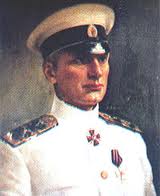
Kolchak was then promised safe passage by the Czecho-Slovaks to the British military mission in Irkutsk. Instead, he was handed over to the leftist authorities in Irkutsk on January 14. On January 20 the government in Irkutsk gave power to a Bolshevik military committee. Kolchak was "investigated" before a commission of five men from January 21 to February 6. Following the arrival of an order from Moscow, he was summarily sentenced to death along with his Prime Minister, V. Pepelaev. They were executed by firing squad in the early morning and the bodies were disposed of in a local river.
1924 Mussolini's Italy exchanges diplomats with the USSR.
1933 Ernst Thaelman—Communist leader—calls for reorganization of the German Communist Party (KPD) in preparation for clandestine operations in Germany. (THP)
1934 Various: Church and Reich:
France: The Daladier government resigns and the new French Government of National Concentration is installed. (THP)
1941 World War II: Various: North Africa: Countdown to Infamy: Marshall to Short: My impression of the Hawaiian problem has been that if no serious harm is done us during the first six hours of known hostilities, thereafter the existing defenses would discourage an enemy against the hazard of an attack. The risk of sabotage and the risk involved in a surprise raid by air and by submarine, constitute the real perils of the situation . . . . Please keep clearly in mind in all your negotiations that our mission is to protect the base and the naval concentration. [See: Did FDR Have Foreknowledge of Pearl Harbor?]
War Shipping Administration: Established by President Franklin Delano Roosevelt Executive Order No. 9054.
1943 World War II: Shoe rationing begins in the US: Rationing resulted in one serious side effect: The black market, where people could buy rationed items on the sly, but at higher prices. The practice provoked mixed emotions from those who banded together to conserve as instructed, as opposed to those who fed the black market's subversion and profiteering. For the most part, black marketeers dealt in clothing and liquor in Britain, and meat, sugar and gasoline in the United States.
1944 World War II: The critical situation the Germans created in the Allied center convinced Lucas to form a beachhead defense line running from the Moletta River in the north, through the fields of the central sector, to the Mussolini Canal in the south. He issued orders to all Allied troops that this was the final line of resistance to be held at all costs: the shallow beachhead precluded any further retreat. The Germans renewed their attacks on 7 February in the weakened British 1st Division sector and, in two days of bitter fighting, pushed the British troops from the Factory and Carroceto. Although battered and exhausted, they managed to maintain a coherent line.
Wunderwaffen: Speer and Milch meet with Hitler at his headquarters. The Fuehrer informs them that analysis of English periodicals reveals that the English are near to achieving success in the testing of experimental jet aircraft. Hitler demands that production of the Me 262, the Germans' turbojet fighter aircraft, be put on top priority. [See: Wunderwaffen: Hitler's Deception and the History of Rocketry.] 1945 Various: Resistance: Dietrich Bonhoeffer is moved to the Buchenwald Concentration Camp. (THP) [See: The Last Days of the Third Reich.] Yalta Conference: On day four, Poland again dominates the discussion as the Americans introduce a plan for a new Polish Government of National Unity. Churchill immediately withdraws his own Polish proposal, stating he is ready to get behind the American plan with a few minor amendments. Molotov and Stalin, however, immediately attack the plan, refusing to enlarge or alter the Warsaw government in any way. Churchill is eloquent in his defense of the Americans, while FDR adds nothing to the discussion. Stalin, claiming an inability to round up his Poles in to order to consider FDR's compromise solution, abruptly changes the subject by announcing that the Soviet Union is now prepared to accept the American formula for voting in the United Nations Security Council. Molotov characterizes this concession as a contribution toward assuring 'the maximum of unity among the three great powers in the question of peace and security after the war.' Churchill expresses his 'heartfelt thanks to Marshal Stalin and Mr. Molotov.' A delighted Roosevelt hails Stalin's concession as 'a great step forward which would be welcomed by all the peoples of the world.' (Harriman) The Prime Minister made it clear that, speaking only for Great Britain, it would be said that the British Government had given way completely on frontiers, had accepted the Soviet view and championed it. To break altogether with the lawful government of Poland which had been recognized during all these five years of war would be an act subject to the most severe criticism in England. It would be said that we did not know what was going on in Poland, that we could not even get anyone in there to find out what was going on, and that we had accepted in toto the view of the Lublin government, Great Britain would be charged with forsaking the cause of Poland and he was bound to say that the debates in Parliament would be painful and, he might add, most dangerous to Allied unity. 1946 Nuremberg Tribunal: Fifty-Third Day: Presentation of Cases against Fritz Saukel, Hermann Goering and Could the chief of the Four Year Plan, when he ordered the Plenipotentiary for Labor Allocation to recruit 1 million foreign workers for the Reich, forget that this act was contrary to international conventions and leave out of consideration the tragic consequences which the execution of this murderous action would entail, and has in fact entailed, for these people and for their families? (In response to the presentation in court this day by France) Fritzsche and Speer showed that Goering's stealing of art treasures was really the damaging accusation in German eyes. "They didn't even mention the worst part of it," Fritzsche pointed out, "that he even sold the stuff he stole. But that Frenchman who presented the case did a really good job—much more effective than name calling, and he cleverly left the word for it up to the court to decide." "You see," said Speer, "how can there be any talk of a united front among the defendants when that man has disgraced himself like that?" Goering came over after lunch while I was reading the papers to some of the others, looking over my shoulder. He started to wisecrack about having a grudge against the brain-doctor. The others walked away to avoid the pretense of joking with him, and Goering expressed great interest in the day's news. (Gilbert) 1948 Omar Bradley succeeds Dwight Eisenhower as US Army Chief of Staff.
1950 France: Georges Bidault forms a government: As head of the Conseil National de la Resistance, Bidault organized the uprising against the German Army in August 1944. When Charles De Gaulle arrived back in France he appointed Bidault as foreign minister in his provisional government that he formed after the successful D-Day Landings. Bidault became prime minister of France in 1946 and in 1949-50. Other posts included defence minister (1951-52) and foreign minister (1953-54) before becoming prime minister in 1958. Bidault became increasingly conservative and in 1958 founded a new right-wing Christian Democratic Party. Bidault was furious in 1961 when Charles De Gaulle began negotiating Algerian independence and established the National Resistance Council. After advocating terrorism in France and Algeria he was charged with treason.
1961 Death: Louis-Ferdinand Celine: French physician, author, anti-Semite, at 67. Louis-Ferdinand Destouches, French writer and physician who wrote under the nom de guerre "Celine". He was born Louis-Ferdinand Destouches at Courbevoie in the Seine departement (now Hauts-de-Seine). Celine received only a basic education before he joined the French cavalry. He fought in World War I and was decorated for his actions in a battle where he was allegedly wounded in the head. Discharged from the Army, after the war he studied to obtain a medical degree. He worked in France as a doctor, then travelled to the United States where he became the staff surgeon at the Ford Motor Company plant in Detroit, Michigan. Next he worked in Africa and for the new League of Nations before taking up a permanent position as a doctor to the poor in Paris. He then started to write in his spare time.
1967 Death: Henry Morgenthau Jr: Former US Treasury Secretary: The Morgenthau Plan was a plan for the occupation of Germany after the Second World War that advocated harsh measures that would permanently destroy Germany as a major power. It was named after American Treasury Secretary Henry Morgenthau, Jr. At a conference between the President and Prime Minister upon the best measures to prevent renewed rearmament by Germany, it was felt that an essential feature was the future disposition of the Ruhr and the Saar. The ease with which the metallurgical, chemical, and electric industries in Germany can be converted from peace to war has already been impressed upon us by bitter experience. It must also be remembered that the Germans have devastated a large portion of the industries of Russia and of other neighboring Allies, and it is only in accordance with justice that these injured countries should be entitled to remove the machinery they require in order to repair the losses they have suffered. The industries referred to in the Ruhr and in the Saar would therefore be necessarily put out of action and closed down. It was felt that the two districts should be put under some body under the world organization which would supervise the dismantling of these industries and make sure that they were not started up again by some subterfuge. This program for eliminating the war-making industries in the Ruhr and in the Saar is looking forward to converting Germany into a country primary agricultural and pastoral in its character. Prime Minister Winston Churchill cabled news of the agreement to Clement Attlee, his deputy in London, and US President Franklin D. Roosevelt advised the Secretaries of State and War of his approval in a memo dated September 15, 1944. Secretary of the Treasury Henry J. Morgenthau Jr. convinced Roosevelt to write to Secretary of State Cordell Hull and Secretary of War Henry L. Stimson saying that a U.S. occupation policy which anticipated that "Germany is to be restored just as much as the Netherlands or Belgium" was excessively lenient. A better policy would have the Germans "fed three times a day with soup from Army soup kitchens" so "they will remember that experience the rest of their lives."
1979 Death: Josef Mengele: The infamous Nazi doctor at the Auschwitz death camps
Mengele was born on March 16, 1911, in Gunzburg, Germany. His father founded Frima Karl Mengele & Sohne, a factory that produced farm machinery, in Bavaria. In college, Mengele first studied philosophy, imbibing the rascist theories of Alfred Rosenberg‑‑who posited the innate intellectual and moral superiority of Aryans‑‑and then took a medical degree at the University of Frankfurt am Main. Soon thereafter he enlisted in the SA, the paramilitary force of the Nazi Party. Mengele was so enthusiastic about Nazism that in 1934 he joined the research staff of the Nazi Institute for Hereditary Biology and Racial Hygiene.
When war erupted, Mengele was a medical officer with the SS, the elite squad of Hitler's bodyguards who later emerged as a secret police force that waged campaigns of terror in the name of Nazism. In 1943, Mengele was called to a position that would earn him his well-deserved infamy. SS head Heinrich Himmler appointed Mengele the chief doctor of the Auschwitz death camps in Poland.
Mengele, in distinctive white gloves, supervised the selection of Auschwitz' incoming prisoners for either torturous labor or immediate extermination, shouting either "Right!" or "Left!" to direct them to their fate. Eager to advance his medical career by publishing "groundbreaking" work, he then began experimenting on live Jewish prisoners. In the guise of medical "treatment," Mengele injected, or ordered others to inject, thousands of inmates with everything from petrol to chloroform to study the chemicals' effects. Among other atrocities, he plucked out the eyes of Gypsy corpses to study eye pigmentation, and conducted numerous gruesome studies of twins.
Mengele managed to escape imprisonment after the war, first by working as a farm stableman in Bavaria, then by moving to South America. He became a citizen of Paraguay in 1959. He later moved to Brazil, where he met up with another former Nazi party member, Wolfgang Gerhard. In 1985, a multinational team of forensic experts traveled to Brazil in search of Mengele. They determined that a man named Gerhard had died of a stroke while swimming in 1979. Dental records later revealed that Mengele had, at some point, assumed Gerhard's identity and was the stroke victim.
1981 Death: Hermann Esser—one of Hitler's earliest comrades—NSDAP propaganda chief, 1925-26. Appointed Bavarian Economy minister in 1933, president of Reich Tourist Traffic Association in 1936 and state secretary of the Reich Propaganda Ministry. In 1950, Esser was sentenced to five years in labor camp but was released in 1951. He kept a low profile in Germany for the next thirty years.
1990 Soviet Communist Party gives up monopoly on political power: The Central Committee of the Soviet Union's Communist Party agrees to endorse President Mikhail Gorbachev's recommendation that the party give up its 70-year long monopoly of political power. The Committee's decision to allow political challenges to the party's dominance in Russia was yet another signal of the impending collapse of the Soviet system.
At the end of three days of extremely stormy meetings dealing with economic and political reforms in the Soviet Union, the Central Committee announced that it was endorsing the idea that the Soviet Communist Party should make "no claim for any particular role to be encoded in the Constitution" that was currently being rewritten. The proposal was but one of many made by President Gorbachev during the meetings. Critics of Gorbachev's plan charged that dissipating the Communist Party's power would erode the gains made since the Bolshevik Revolution and would weaken the international stature of the Soviet Union. Supporters, however, carried the day—they noted the impatience of the Soviet people with the slow pace of change and the general pessimism about the crumbling economy under communist rule. As one Communist Party official noted, "Society itself will decide whether it wishes to adopt our politics." However, he was also quick to add that the move by the Central Committee did not mean that the Communist Party was removing itself from public affairs. Many foreign observers stressed that even in a new pluralistic political system in Russia, the well-established party would have immense advantages over any challengers.
The response from the United States was surprise and cautious optimism. One State Department official commented that, "The whole Soviet world is going down the drainpipe with astonishing speed. It's mind-boggling." Former Secretary of Defense Caspar Weinberger indicated that he was "personally gratified and astonished that anyone would have the chance to say such things in Moscow without being shot." President George Bush was more circumspect, merely congratulating President Gorbachev for his "restraint and finesse."
Ironically, the fact that the Communist Party was willing to accept political challenges to its authority indicated how desperately it was trying to maintain its weakening power over the country. The measures were little help, however—President Gorbachev resigned on December 25, 1991 and the Soviet Union officially ceased to exist on December 31, 1991. (History.com)
1992 European Union treaty signed:
After suffering through centuries of bloody conflict, the nations of Western Europe finally unite in the spirit of economic cooperation with the signing of the Maastricht Treaty of European Union. The treaty, signed by ministers of the European Community, called for greater economic integration, common foreign and security policies, and cooperation between police and other authorities on crime, terrorism, and immigration issues. The agreement also laid the groundwork for the establishment of a single European currency, to be known as the "euro." By the time the Maastricht Treaty took effect in 1993, it had been ratified by 12 nations: Great Britain, France, Germany, the Irish Republic, Spain, Portugal, Italy, Greece, Denmark, Luxembourg, Belgium, and the Netherlands. Since then, Austria, Bulgaria, Finland, Sweden, Cyprus, the Czech Republic, Estonia, Hungary, Latvia, Lithuania, Malta, Poland, Romania, Slovakia, and Slovenia have also joined the union. The euro was introduced into circulation on January 1, 2002. (History.com)
Edited by Levi Bookin (Copy editor) Click to join 3rdReichStudies FAIR USE NOTICE: This site may contain copyrighted material the use of which has not always been specifically authorized by the copyright owner. We are making such material available in our efforts to advance understanding of historical, political, human rights, economic, democracy, scientific, environmental, and social justice issues, etc. We believe this constitutes a 'fair use' of any such copyrighted material as provided for in section 107 of the US Copyright Law. In accordance with Title 17 U.S.C. Section 107, the material on this site is distributed without profit to those who have expressed a prior interest in receiving the included information for research and educational purposes. If you wish to use copyrighted material from this site for purposes of your own that go beyond 'fair use', you must obtain permission from the copyright owner. Please note that the list-owner and the moderators are not responsible for, and do not necessarily approve of, the random ads placed on our pages by our web server. They are, unfortunately, the price one pays for a 'free' website.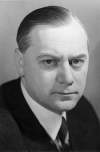
1939 Holocaust: Madagascar Plan: Rosenberg—at a press conference in Berlin—discusses a plan to settle all 15 million of the world's Jews on the island of Madagascar. [See: What Was the Nature of Hitler's Anti-Semitism?]
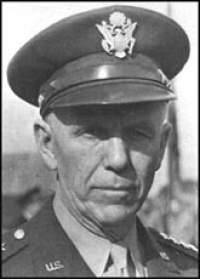




Stalin counters by stating that the situation in Poland is not nearly as tragic as Churchill maintains, and compares the un-elected status of de Gaulle's regime in France—supported by Churchill—and Stalin's Lublin Poles. He suggests that his partners would be better served concentrating on 'the reconstruction of the Provisional Government rather than attempt to set up a new one.' FDR asks Stalin how long he supposes it will be before elections can be held in Poland. Stalin replies that, barring some catastrophic set-back on the battlefield, the Poles should be at the polls with a month. FDR is comforted by this assurance. 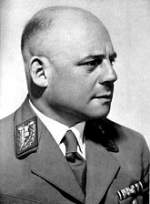
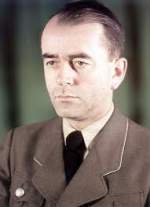

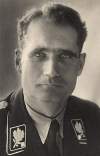
Could the Minister for Armaments and War Production who set up, in agreement with or by order of the Chief of the Air Force, underground aircraft factories in the internment camps-could he, I say, fail to be aware that under such conditions to use prisoners who were already exhausted was equivalent to causing their premature death?
Could the diplomat who, on various pretexts, treated diplomatic instruments intended to assure the stability and the peace of the world as scraps of paper-could he lose sight of the fact that these acts would plunge the civilized world into catastrophe? [For the full text of today's proceedings, Click here.]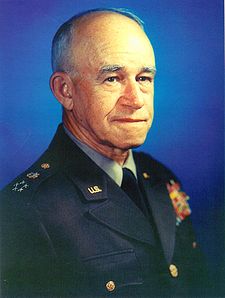
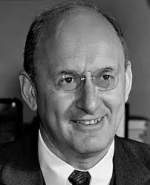
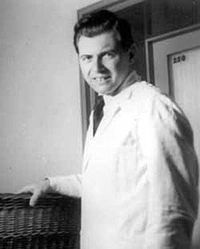

levi.bookin@gmail.com






